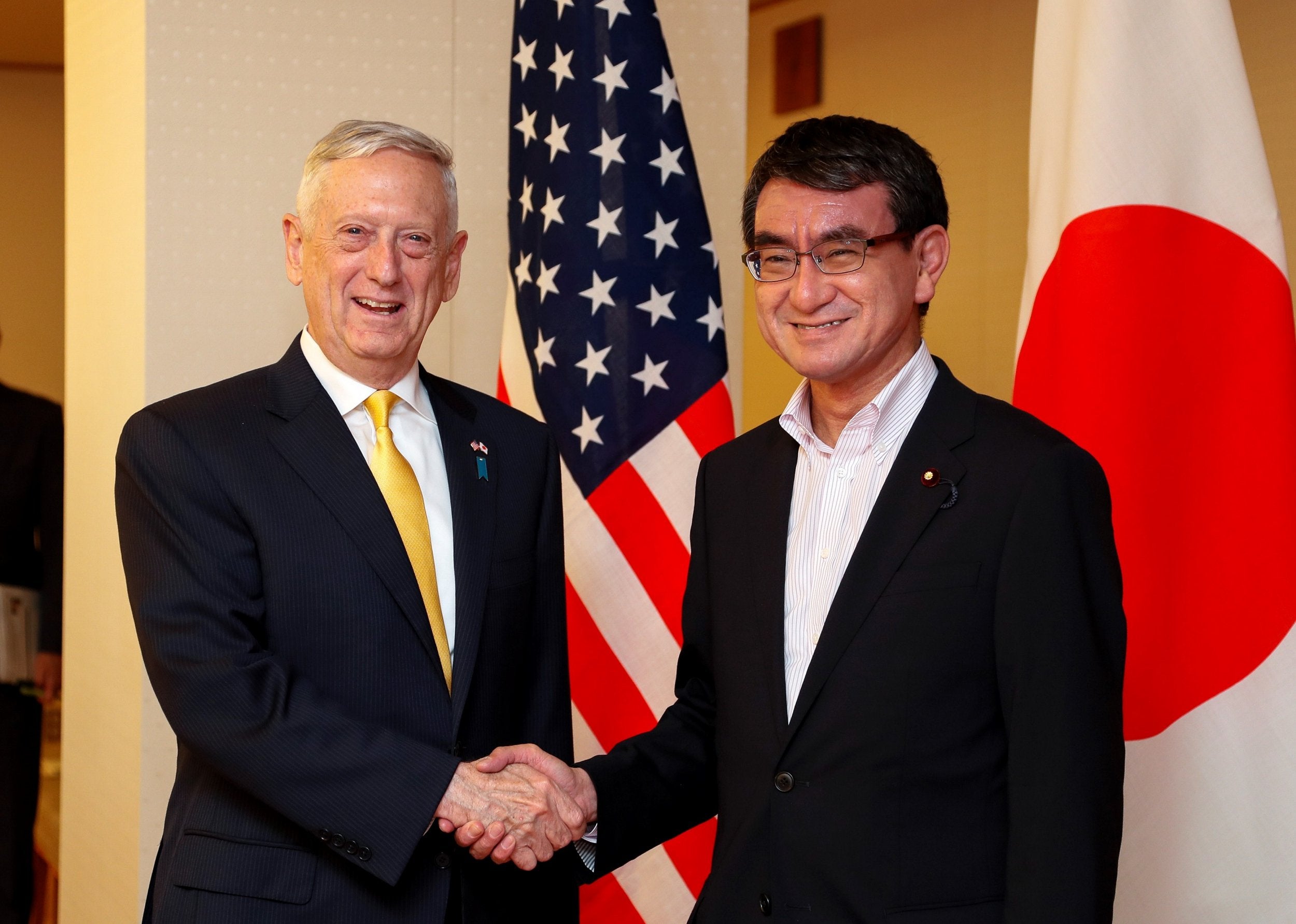US reassures Japan it will continue joint military drills despite North Korea concerns
US defence secretary also says US will maintain number of troops on Korean Peninsula

Your support helps us to tell the story
From reproductive rights to climate change to Big Tech, The Independent is on the ground when the story is developing. Whether it's investigating the financials of Elon Musk's pro-Trump PAC or producing our latest documentary, 'The A Word', which shines a light on the American women fighting for reproductive rights, we know how important it is to parse out the facts from the messaging.
At such a critical moment in US history, we need reporters on the ground. Your donation allows us to keep sending journalists to speak to both sides of the story.
The Independent is trusted by Americans across the entire political spectrum. And unlike many other quality news outlets, we choose not to lock Americans out of our reporting and analysis with paywalls. We believe quality journalism should be available to everyone, paid for by those who can afford it.
Your support makes all the difference.The US secretary of defence has sought to reassure Japan of Washington’s commitment to the defence of the region amid ongoing denuclearisation talks with North Korea.
James Mattis met with the Japanese defence minister, Itsunori Onodera, on Friday, and told him his visit represents “just how strongly we prioritise this relationship between our two militaries.”
Japan’s defence establishment was startled by Donald Trump’s recent decision to halt what he said were “expensive” military exercises with South Korea, which Tokyo has long considered a deterrent to threats from North Korea.
Mr Mattis said even as the US is in “unprecedented negotiations” with the totalitarian state, “in this dynamic time, the longstanding alliance between Japan and the United States stands firm.
He went on to say ”there is absolute reassurance between the two of us that we stand firm” and the relationship will not be affected by the denuclearisation talks.
After their meeting, Mr Onodera said they had agreed to continue joint military exercises and reinforce the response capability of the US-Japan alliance.
Earlier this month, he urged the international community to keep sanctions and surveillance on North Korea, warning it has a history of reneging on agreements.
Speaking at an international security conference in Singapore, Mr Onodera said North Korea agreed to give up nuclear weapons as early as 1994, but has continued to develop them in secret and until last year threatened surrounding countries with a series of ballistic missile launches.
On Friday, he said the US and Japan must work together for the dismantlement of “all of North Korea’s weapons of mass destruction, including biological and chemical weapons and ballistic missiles of all ranges.”
Japan hosts around 50,000 US military personnel, including the largest overseas concentration of US Marines and a US Navy carrier strike group.
In another nod to Japan’s concerns, Mr Mattis noted the blue ribbon-shaped lapel pin the minister was wearing, a reference to the 12 Japanese citizens abducted by North Korea four decades ago to train its spies.
“I note with respect the blue lapel pin you wear, and we’re with you,” Mr Mattis remarked as he sat down for talks at the defence ministry. He later said the abductee issue was “always present in our deliberations.”
Japan has argued their release should be part of the ongoing negotiations with Pyongyang.
Mr Mattis also reassured South Korea the US would maintain the current number of troops it has on the Korean Peninsula during a brief visit to Seoul on Thursday.
Speaking alongside the South’s defence minister, Song Young-moo, he read a lengthy statement reinforcing America’s “ironclad” commitment to Seoul.
He went on to say the US would “continue to use the full range of diplomatic and military capabilities to uphold this commitment.”
However, in both Seoul and Tokyo, he defended Mr Trump’s decision to halt “war games,” saying it would help diplomats negotiate.
“This decision was taken to create space for our diplomats to negotiate strongly and increasing the prospects for a peaceful solution on the peninsula,” Mr Mattis said.
“At the same time, we maintain a strong collaborative defensive stance to ensure our diplomats continue to negotiate from a position of unquestioned strength.”
Additional reporting by agencies
Join our commenting forum
Join thought-provoking conversations, follow other Independent readers and see their replies
Comments